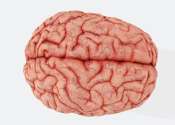Imaging technique reveals that bacterial biofilms are associated with colon cancer
Researchers from Johns Hopkins have found that dense mats of interacting bacteria, called biofilms, were present in the majority of cancers and polyps, particularly those on the right side of the colon. The presence of these ...







